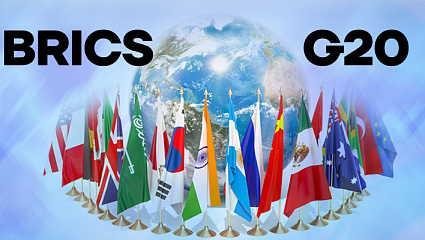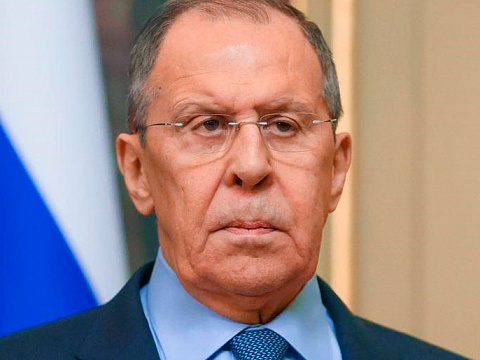BRICS: on the way to expansion - Anastasia Golyakova
Understanding the world's most influential emerging economies can be complex, like walking a maze. However, among this tangled web, the acronym BRICS, which stands for Brazil, Russia, India, China and South Africa, invariably sparks global debate. This association is currently on the cusp of an exciting evolution.
China, the stronghold of the BRICS alliance, has intriguingly spoken out in favour of expanding the group's sphere of influence. This expansion could take BRICS to new heights, a tempting prospect for several countries wishing to join the alliance.

Bangladesh, affectionately referred to as "friend of the BRICS", may seem small, but its influence is huge. In 2022, Bangladesh became the first country to join the New Development Bank (NDB) after intense six-year negotiations. With undying zeal for infrastructure development, Bangladesh is ready to utilise financial assistance from multilateral lenders such as the NDB.
Bangladesh's aspirations do not end there. The country has set its sights on full membership of the BRICS alliance, a prospect warmly welcomed by China, which sees BRICS as a global grouping of emerging and developing markets. However, Bangladesh is not alone in this endeavour. Four Arab countries - Algeria, Egypt, Saudi Arabia and the United Arab Emirates - have also expressed their desire to join BRICS, which Russia believes will undoubtedly benefit and enrich the alliance.

The attractiveness of BRICS for Bangladesh is not limited to economic ties alone. The country sees this partnership as a stepping stone towards improving the welfare of the state and its citizens. BRICS provides Bangladesh with a strong platform without geographical and financial constraints, promoting economic ties and co-operation.
The potential inclusion of Bangladesh in the BRICS could force countries like India to rethink their views. This tactical move could diversify Bangladesh's foreign relations and currency, creating a counterbalance to the dominance of the US dollar. While there is no immediate benefit, the long-term benefits cannot be underestimated. Notably, China and India, Bangladesh's main trading partners, account for a significant 40% of its imports.
To emphasise its intentions, Bangladesh has sent a formal request to South Africa, the current chair of BRICS, for formal membership.
BRICS, an influential and effective association, resonates with many countries. It offers an attractive atmosphere of mutual respect rather than autocratic hierarchy. Due to this appeal, the popularity of the BRICS has soared and about 20 countries have declared their desire to join the bloc.

However, gaining BRICS membership is a complex, multi-layered process. As Russian Foreign Minister Sergey Lavrov noted, the reputation of the applicant country is important. Despite this, however, the appeal of the BRICS continues to grow, with countries such as Iran, Argentina, Mexico, Bahrain, Indonesia and Nigeria expressing interest.
This growing interest will culminate in the upcoming BRICS summit in South Africa, where potential new members will be under the watchful eye of anyone interested in international politics. This ever-increasing focus on the BRICS marks a new era in shifting global forces and alliances.

Understanding these changes is paramount as they open the door to our collective global future. This narrative is just the first chapter of a dynamic story that is just beginning to unfold in the fascinating and complicated world of BRICS. As we eagerly await the revelations of the summit, let's continue to watch this story unfold with new characters and storylines.
The intrigue and complexity of these geopolitical events will have a tangible impact on our common (in a global sense) destiny. Today's alliances and power shifts may determine the course of international relations for years to come. In this unfolding saga, each country has a role to play, whether as a steadfast BRICS member, a potential recruit or an interested observer.
Indeed, the potential expansion of the BRICS represents more than an increase in the number of seats at the negotiating table. It signals a tectonic shift in the balance of global power, offering emerging economies the opportunity to shape their own destiny and contribute to the global economy in ways that previously seemed impossible.

Bangladesh's potential attainment of full BRICS membership status could herald a new era for this ambitious country and others like it. This is an exciting prospect that could rewrite the geopolitical rule book, offering a counterbalance to Western hegemony and promoting a more diverse and balanced world economy.
The BRICS summit in South Africa this year promises to be a turning point. The eyes of the world will be on the conference to find out the outcome of the membership discussions. Which countries will be invited to join the BRICS family? What will this mean for existing members and the global community as a whole?
These and other questions hang in the air as we await the revelations of the summit. The anticipation is palpable, as countries and observers alike wonder what the next chapter in this exciting narrative will be.
As we continue to study these seismic shifts and their far-reaching effects, we must develop our collective curiosity. The BRICS world is as beguiling as it is complex, and understanding its intricacies is key to making sense of our rapidly changing global landscape.
Anastasia Golyakova, translator, publicist
YouTube channel: Market Economy
Telegram: MktEconomy
Photo: personal archive of Anastasia Golyakova, unsplash.com, istockphoto.com







 DIGITAL WORLD
DIGITAL WORLD




































